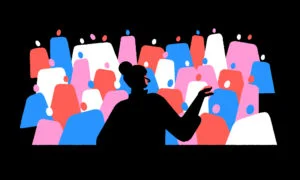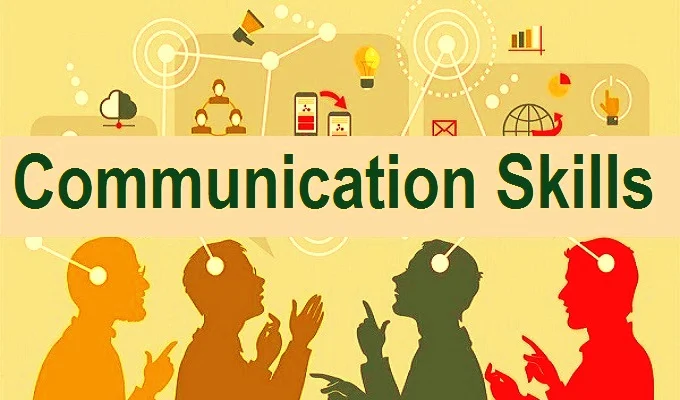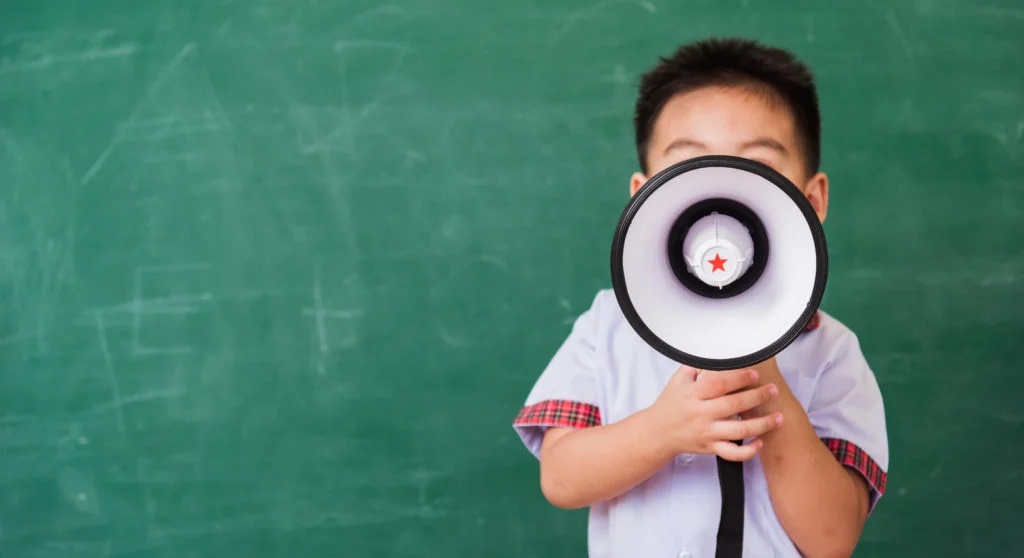A significant part of life. These skills help to express our thoughts and ideas to others, as well as understand and be understood by them. It can be difficult to improve your communication skills. In this article, we will explore how you can create a plan to develop your communication skills. Speaking and writing are the two most important skills for any individual to possess.
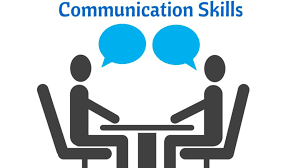
Communication skills- The key to success
Communication is the key to success. When a person is skilled at communicating, they can often find common ground with others, find solutions and help others. Communication is what allows us to interact with each other and form relationships. Our interaction would be limited solely to work or school, and we would have fewer learning opportunities, expanding, and making connections, without communication.
When communicating, it is important to follow the 7 C’s of effective communication- Clarity, Concreteness, Consideration, Conciseness, Correctness, Courtesy, and Consideration. Without these, we might not be able to effectively communicate what we intend to.
Where to start?
Significant Point. Listening to people instead of just talking about yourself would help if one wants to improve. Find out what their needs are and how you can help them out. You need to identify the type of communication you’d like to improve first, such as written or oral. Then, determine what skills you need to acquire to achieve your goal. For Example – if you want to improve your writing skills but are unsure where to start, you can try working on your grammar and spelling. You can also practice expressing your thoughts and ideas in writing, which can also help build your confidence when communicating verbally.
In addition, there are many barriers while communicating, such as Physical barriers, Language barriers, Cultural barriers, Interpersonal barriers, and Perceptual barriers. These barriers often hinder chances of effective communication.
Verbal Communication
Verbal communication is communicating with the use of words. This form of communication is written or oral. We use verbal communication in our day-to-day life. It is important to work on your communication skills because they can help you influence others, have a good relationship with them. Once you become better at verbally communicating, only then you will be able to work on some other skills that are important for you.

Providing Effective Communication with the Right Skills
Communication is the process of relaying messages, thoughts, and feelings between individuals or groups. It is the transfer of information between people through spoken or written words or sounds.
Communication is very important skill, and only a few human beings have mastered the art of speaking. If you want to improve your communication ability, then there are some important skills that you can use to help.

The Important Skills to Foster are-
Speak Up: Speaking plays a role while communicating. If you want to improve your verbal communication skills, then you’ll need to keep speaking up. There is no way to improve without speaking out. It can be as casual as small talk, or major such as giving your opinion.
- Listen: If you want to increase your ability at communicating, then you’ll need to listen just as much. Your ability to listen and understand what others are saying is key to improving your communication skills. You tend to learn and pick up on new information and styles of communication.
- Express your ideas: It’s important to know how to express your idea effectively. Expressing your idea effectively has a huge impact on how the other person might react.
- Ask questions: Asking questions helps you learn and pick up on new pieces of information. You will also come off as interested, curious, and is a perfect way to maintain conversations with others.
- Observe: You must notice what’s going on around you. Observing your surrounding can help you come across as observant, and help you gain insight.
- Assess and Understand: Assessing and understanding your surroundings is crucial. This shows that you are attentive, alert and helps your judgment skills in the long run.
The communicator should have a well-rounded set of skills that can be broken down into three basic building blocks: listening, speaking, and writing. These skills are the foundation for effective communication and if they are not honed well, the outcomes will not be as desirable as if they had been.
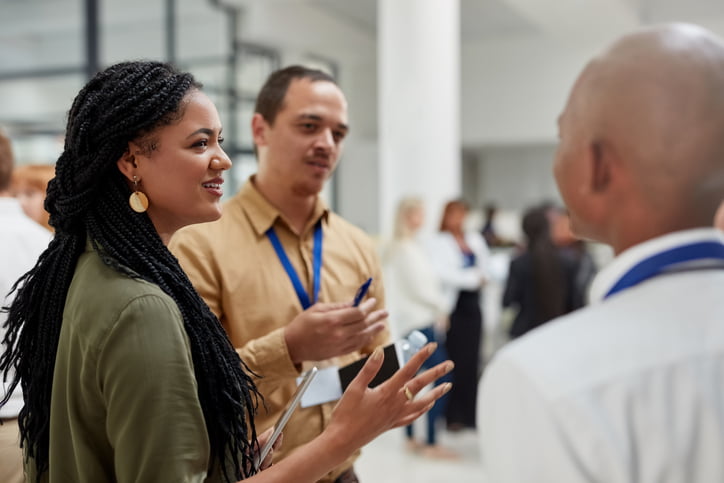
Additional Tips to Improve your Communication Skills
https://www.youtube.com/embed/zvcbn6WtJvQ?feature=oembed6 communication truths that everyone should know!
Non-Verbal Communication
Communication is a key skill that you need to learn and practise regularly to improve your life. Here are some additional tips to help you become a better communicator.
- Write a goal to start improving your communication skills with others. You can practice speaking in front of a mirror. Pick out topics, or conversation starters, and practice talking to yourself. This will help you figure out your body language
- Work on being more precise while communicating. The more you can accurately point something out, the easier it will be for the listener to grasp it.
- Always remember that you can’t always control others, but you can control how you react to their reactions.
- It is very important to work on your facial expressions and body language. These can either help or hurt your communication, depending on how you use them.
- Learn to ask for what you want and be assertive when necessary. Do not assume that a person thinks the same way you do. They might perceive your words differently and have different opinions, which you don’t have to agree with.
- Don’t confuse what you are feeling with your value system. Be aware of how others might be feeling and try to respond appropriately.
- Practice some relaxation techniques or exercises to calm or centre yourself when you feel nervous while communicating.
- Remember that we are all human beings. Sometimes, it may seem like you are the only one making mistakes. Do not overthink past conversations that aren’t important.
- Take action to improve how you communicate in different situations. Continue to work on improving your communication skills by reading books, attending classes, or going to conferences.
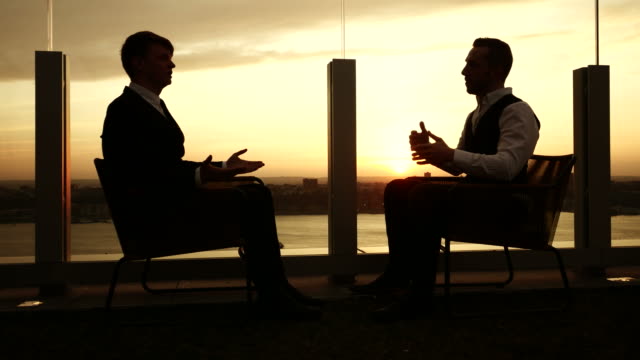
Source- Google Images
Important Points
Communication is an essential part of life, and it’s not just verbal. A majority of the conversation is carried through non-verbal cues. Our body language and our expressions often say what we might not verbally put across. Non-verbal communication has an equally important role in effective communication. Nonverbal communication is a form of communication that involves actions or gestures rather than verbal messages. It occurs in every situation and can be observed in many different situations. They can be used to express all kinds of emotions, including love, anger, sadness, happiness, and surprise. At times, we don’t need to hear the person speak to analyse non-verbal cues.
- At times, non-verbal communication can be hard to assess, but it has so much information that every non-verbal behaviour is worth looking into. These behaviours can give clues about how people are feeling, what they’re thinking, and more. There are a variety of cues that we unconsciously send to others through our facial expressions and body language. This includes things like tone of voice, eye contact, and posture. Non-verbal communication has a huge impact on the way we are perceived in day-to-day interactions. A person’s body language can help them gauge how we feel about them, which can, in turn, dictate whether they want to engage with us. If a person’s body language is not aligned with how they are feeling inside, it can cause problems and misunderstandings.

Body Language
Body Language and Other Verbal Cues
At times, the words we verbally say might not match our body language. For Example – When someone is performing an important task, their gestures are quite different, as compared to when they are having a casual conversation. It comes in many forms, but one of the most important is our facial expressions. We make facial expressions when we feel a specific emotion like happiness, anger, fear, sadness, or surprise. This form of non-verbal communication is not taught in school. Most people go through life without knowing that they are communicating something to someone without using words. Non-verbal communication cues are a language that we have yet to learn.
There are certain non-verbal cues that we do not always say out loud. These cues can be seen through body language, such as the use of eye contact and facial expressions. Here are just a few examples of non-verbal cues that can help make the conversation more interesting and interactive.
Examples of non-verbal cues
Some cues are more obvious than others, however – here are some signs you should be on the lookout for.
- A lack of eye contact- Eye contact is one of the most important nonverbal cues people send out. It’s a key part of showing another person you’re paying attention to them and interested in what they have to say. When someone isn’t making eye contact, it’s usually an indicator that they’re not comfortable with what’s being said. Sometimes, they may even be purposefully avoiding it to hide something.
- Squinting-When you squint, you’re trying to block out the world around you and focus on something else. When someone is looking away from you, it’s usually a good indicator that they’re trying to avoid something. It could be embarrassment after saying something stupid, feeling nervous, or avoiding feeling uncomfortable
- Staring at the phone-When someone is staring at their phone, it’s usually a sign that they don’t want to talk to you and/or don’t want to be around you. This could mean that they’re bored or alone and find it hard to talk to people.
Other Non verbal cues include
- Touching their neck or collarbone – When someone touches their neck or collarbone, it’s an attempt to hide from others that they’re nervous or feeling self-conscious. Pulling their shoulders back – When someone pulls their shoulders back, it’s an attempt to appear more confident or successful.
- Turning away from you – When someone turns away from you, it’s an attempt to hide their nervousness, insecurity, or disinterest in you. Crossing their legs – When someone crosses their legs in anticipation of a person, it’s usually a sign of nervousness, insecurity, or disinterest in you.
- Shaking their head – When someone shakes their head instead of nodding, it’s an attempt to express disagreement or refusal. Leaning forward – When someone leans forward and nods, it’s an attempt to express agreement or interest in what you have to say.
- Rolling their eyes – When someone rolls their eyes, it’s an attempt to express disbelief or anger with what you have to say.
- Slumping in their chair -When someone slumps in their chair, it’s an attempt to disguise how much they’re enjoying what you have to say.
Steps to understand non-verbal cues
There are five basic steps to understand non-verbal communication:
1. Observation: observing the behavior of others in a given situation
2. Interpretation: interpreting the meaning behind what you see
3. Reaction: responding to the person or persons with non-verbal cues such as body language
4. Response: how you adjust your behavior following their reaction
5. Feedback: analyzing how well you communicated with them
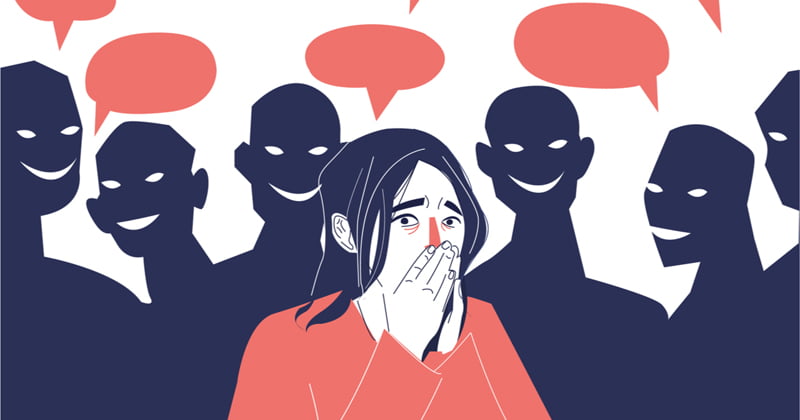
Anxiety while communicating with others
There are many reasons that people may be anxious about interactions with others. Anxiety may be caused by the situation or topic being discussed, the person’s feelings of vulnerability, or poor communication skills. These can all lead to increased anxiety levels and make it difficult to communicate effectively. There are ways one can reduce anxiety while communicating with others. Anxiety is a difficult issue to deal with and often causes communication problems in relationships.
There are many ways to reduce anxiety, but it can take some time for people to find the best solution for them. It is important to figure out the underlying cause of the anxiety, which might be communicating differently or feeling uncomfortable around new people. Diagnosing anxiety as a communication problem is important because it will help you get closer to solving your dilemma and prevent the anxiety from becoming worse. Anxiety can be a challenging issue for people who feel nervous about talking in front of others and doing public speaking.
Public speaking is a major fear for many people, and it can also be more difficult to master than other fears, like heights or spiders. While public speaking may seem daunting, there are ways that you can train yourself to overcome your anxiety. Once you tackle this, you can speak in front of groups without hesitation or any sign of faltering.
Many symptoms develop when someone feels anxious, which include
- Racing and pounding heart
- An accelerated heartbeat
- Sweaty palms
- Dry throat and mouth
- Stomach aches
- Nausea
- Dizziness
- Rapid breathing
- Head aches and more.

Tips to Reduce Anxiety while talking to others
When you speak, you’re sending a message to the people around you. When you are anxious, your voice could be too loud or too soft, your words are slurred or unclear, and your hands could start trembling. At times, to the listener, your posture does not match with the message you’re trying to send. These all serve as cues that signal that someone is anxious. Here are some ways to reduce anxiety–
Calm yourself down when talking to a person
To relieve these sensations, remind yourself of how important it is to keep talking. Remind yourself of how much you enjoy talking to people and how well they react when they hear your voice.
Have a Positive Outlook on the Situation
Anxiety often rises due to unrealistic or overly negative outlook. So instead of focusing on the anxiety, try to see it for what it is. There are several positive attributes that people with anxiety can have. Perhaps one of them is an ability to analyze the situation and a willingness to take care of yourself by controlling the situation. Try not to be over critical about your abilities when you are anxious.
Stay in the Moment
Don’t worry about what went wrong yesterday or what will happen tomorrow. Stay in the moment, and the present will improve over time. You might be able to get this one wrong, but it is a useful technique to explore.
Ask for Help
Ask for help from a person you trust or a stranger, if you think that will help you. This is one of the most powerful techniques in the book. This will help you learn to maintain individual conversations, as well as help your self-esteem and confidence. Taking baby steps is the best way to combat this issue. Once you learn to maintain conversations with individuals, you can work towards people in groups and on stage.
Be Yourself
This is a simple, but very powerful idea. It is all too easy to see things that people say, or how they look, or what they do, but we should be focusing on how we are. We have a choice of being great, good, or average. Start with a level you think is appropriate, and work towards being great.

Practicing speaking skills like extempore, debates, speeches, storytelling, etc can help improve communication skills. These exercises not only help children, but helps every age group develop the skill and confidence.
Frequently Asked Questions
1. How do communication skills help people communicate better?
Communication skills allow you to understand and be understood by others. This allows us to pass and get information from other people. It paves the way to let ourselves be heard, and thus being able to communicate effectively is perhaps the most important of all life skills one should foster.
2. How can you learn to break through the walls that are between people?
Creating a space for people to feel free from judgment by those who do not feel a sense of belonging is a powerful way to start a discussion. The key to fostering a safe space is by listening to those who speak, even if you don’t agree with everything they have to say.
3. Why do people with communication skills have the ability to communicate better?
Good communication skills allow others to understand the information you convey, accurately and quickly. In contrast, poor communication skills lead to frequent misunderstandings and frustration. That’s why people who often communicate with others tend to come across as more confident.
4. Why are communication skills so important?
Good communication skills in life will ensure everyone around you understands you. You will be more confident and assertive, as there will be less misunderstanding, and you won’t have to face issues that come with poor communication. Having effective communication skills will pay off in the long run.
5. What are the 7 C’s of effective communication?
The 7 C’s of Communication are Clarity, Concreteness, Consideration, Conciseness, Correctness, Courtesy, and Consideration.
6. What are the 5 barriers to communication?
The five barriers to communication are Physical barriers, Language barriers, Cultural barriers, Interpersonal barriers, and Perceptual barriers.
Final thoughts
The goal of this guide is to provide you with a variety of communication techniques that will help you become a better communicator. To get the most out of these techniques, we hope that you use them in your daily life and put them into practice. This will help you become a better communicator. Communication is one of the most important skills to have in life. It’s not only about speaking, but also about listening, understanding, and showing interest. With multiple ways to overcome this problem, finding the ultimate solution is in your hands. If you figure out which part of your communication skills needs help, the journey is smooth sailing!
Good luck!Reading minds through body language
Share with your friends

